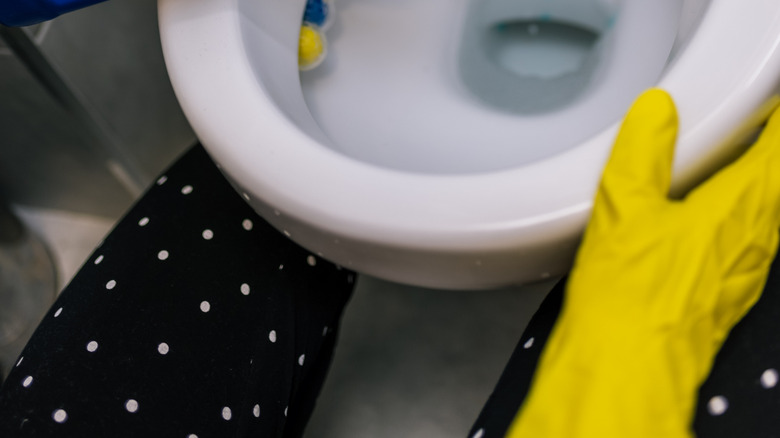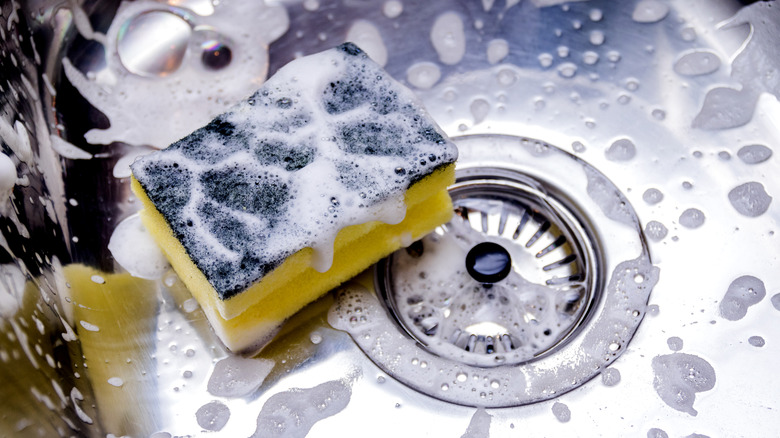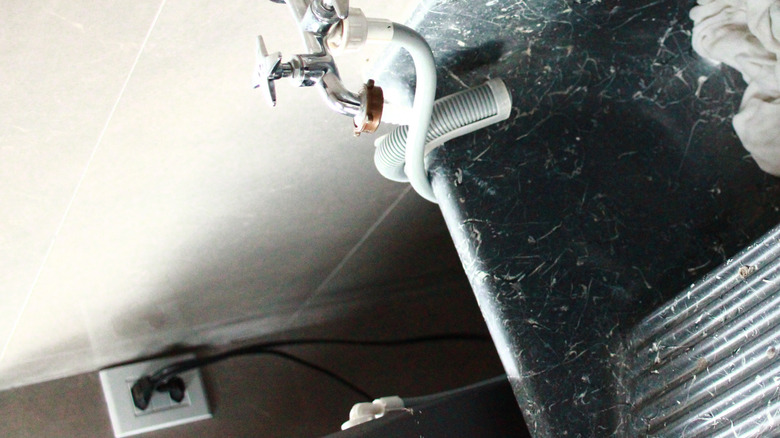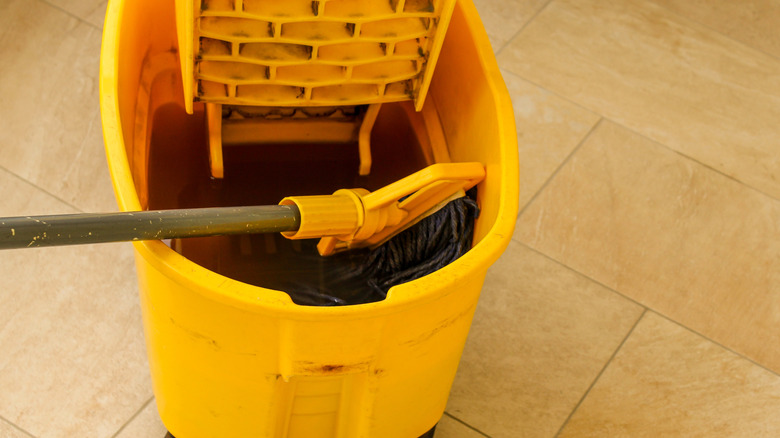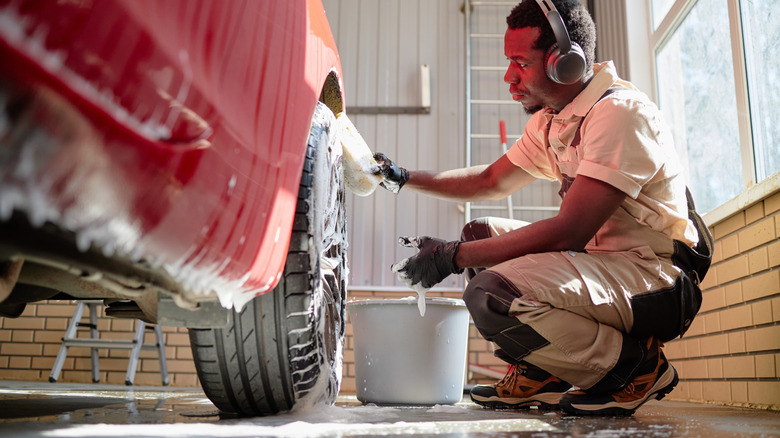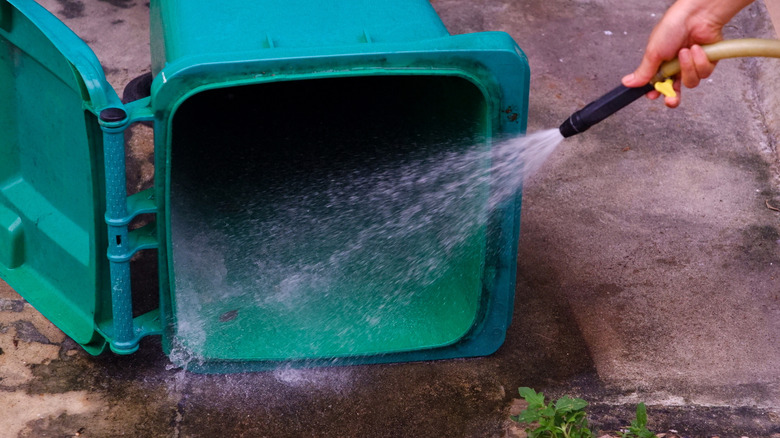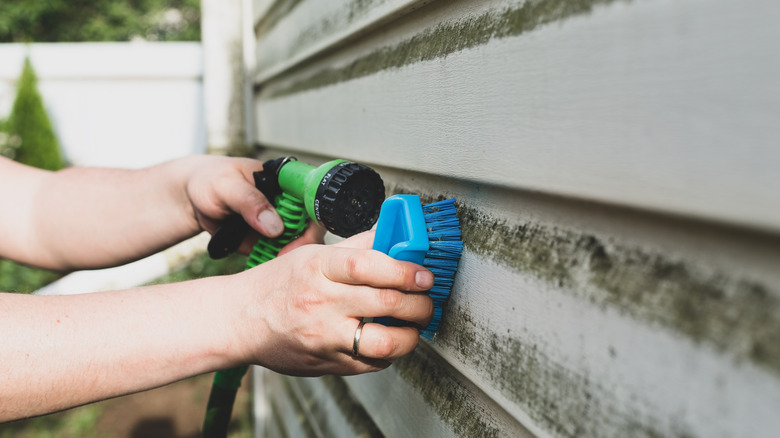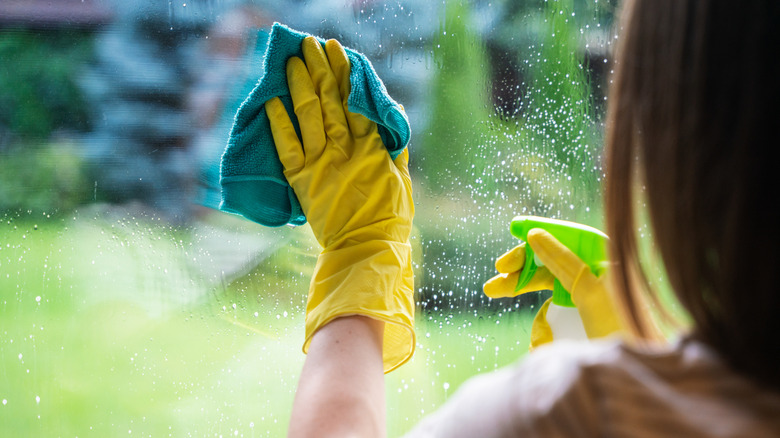7 Little-Known Uses For Toilet Bowl Cleaner Around Your Home
We may receive a commission on purchases made from links.
You're going to find a lot of conflicting advice online about what you can and can't do with toilet bowl cleaner. Some cleaners have to be extra tough to get the job done, and the bathroom is one place in the house that needs a powerful cleaner to get rid of tough toilet stains. But just because it says it's for the toilet doesn't mean it can't be useful elsewhere. There are at least seven little-known uses for toilet bowl cleaners that don't include the toilet.
However, you have to be careful about when, where, and how you use toilet bowl cleaner. In fact, you may not even be sure about the type of toilet bowl cleaner in your bathroom. There are several types of toilet bowl cleaners, with various active ingredients like sodium hydroxide, sodium hypochlorite, and bleach, which are extremely caustic. On the other hand, green toilet bowl cleaners use plant-based ingredients that are less harmful.
Regardless of the active ingredient in your toilet bowl cleaner, it shouldn't be used where it can come in contact with food, and if used in the bathroom, it needs to be rinsed thoroughly to avoid contact with skin. In fact, it's smart to wear gloves and protective gear, and never mix toilet bowl cleaners with other ingredients, especially bleach, which creates toxic fumes and really doesn't mix with common toilet bowl cleaners. You also shouldn't send harsh chemicals down the drain if you have a private septic system.
Kitchen sink
While you should avoid using toilet bowl cleaner on anything that comes in direct contact with food, your kitchen sink may need a deep cleaning every once in a while. If you have to step it up with toilet bowl cleaner, use it in sparing amounts to get rid of tough stains and grimy spots. However, use caution. Some materials, including stainless steel sinks, can be damaged by heavy-duty toilet bowl cleaners. Always reach for the mildest cleaning solutions first, so you don't ruin the fixtures in your home with heavy-duty cleaners that you don't really need.
Laundry and utility sinks
As mentioned, it's good common practice to use the mildest type of detergent or cleaner for the job. In fact, natural cleaning solutions like vinegar and baking soda are often enough. However, laundry sinks are home to some of the dirtiest chores in the house, so it's understandable if you reach for harsher chemicals for cleaning. However, instead of squirting a lot of cleaner on, try using a small amount on a cloth. Also, be sure to match the cleaner with the type of laundry or utility sink you have, whether it's stainless steel or acrylic.
Mop buckets
When it comes to toilet bowl cleaners, most of them fall into two categories: acid-based and bleach-based solutions. Most mop buckets are made of plastic, which can degrade over time when exposed to harsh chemicals. For this job, a natural toilet bowl cleaner, such as Better Life Toilet Bowl Cleaner, should be enough to do the job, but if not, a little bleach-based toilet bowl cleaner will work against tough grime in your mop bucket.
Vehicle tires and wheels
When the rubber literally meets the road, vehicle tires take a beating. Sometimes, a deep cleaning with something a little more heavy-duty than dish soap or wheel cleaner is called for. If you're looking to get rid of rust stains on wheels or rims, using an acid-based toilet bowl cleaner will help remove built-up iron rust and grime. Just use caution when applying acid-based cleaners to metal, as chemical reactions can sometimes cause discoloration; test an inconspicuous area first.
Trash receptacles
Cleaning the trash containers may be the dirtiest job around the house. Like mop buckets, many trash receptacles are made of plastic, which doesn't react as much to harsh chemicals as metal does. This is another case where it's important to match the type of toilet bowl cleaner to your receptacle. It's also important to think ahead as to where you want the water runoff to go when you clean your trash cans. Toilet bowl cleaners are not environmentally friendly, and those with harsh acids can even damage your concrete driveway.
Vinyl siding
If you've scrubbed and scrubbed your vinyl siding and can't get it to come clean, toilet bowl cleaner can help make your vinyl siding look like new again. Vinyl is similar to plastic in that it doesn't react to chemicals the same way that certain metals do, and a weak solution in a pump sprayer is all you need for a cost-effective way to clean your vinyl siding. As always, test a spot that's not highly visible before using this product on large areas.
Windows
The outside of your windows can get hit with a lot of materials, from dirt and debris to rain and sprinkler water. Every once in a while, getting after the hard stains on your windows takes a little more than elbow grease. If everything else you've tried isn't working, you can use one of the acid-based toilet bowl cleaners. Spray a weak solution and use a microfiber cloth to avoid a dripping mess. Always wear protective gear, including gloves and eyewear, when cleaning with harsh chemicals.
